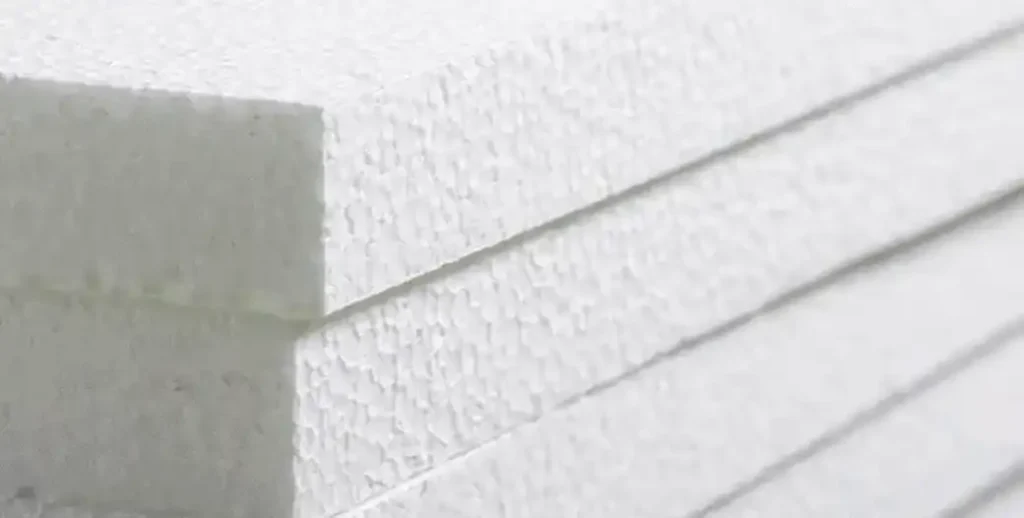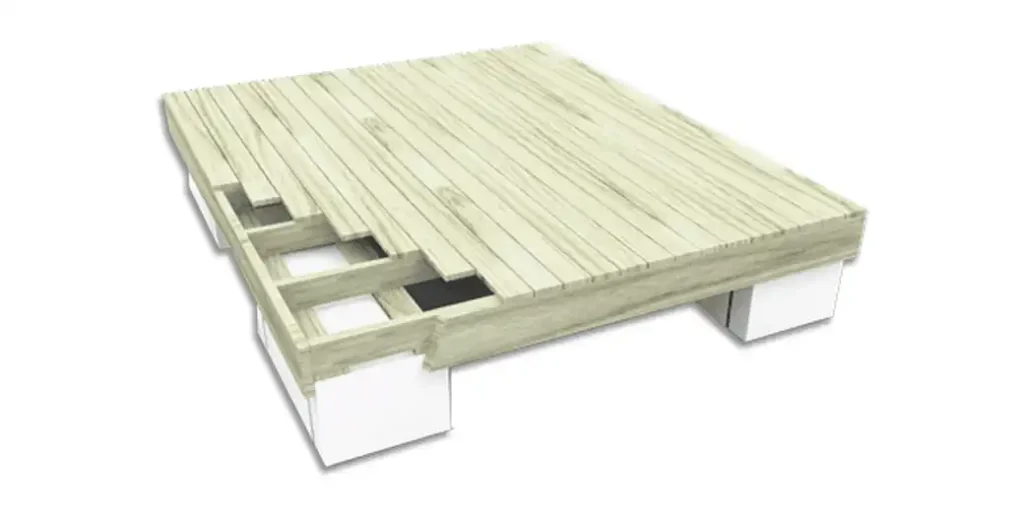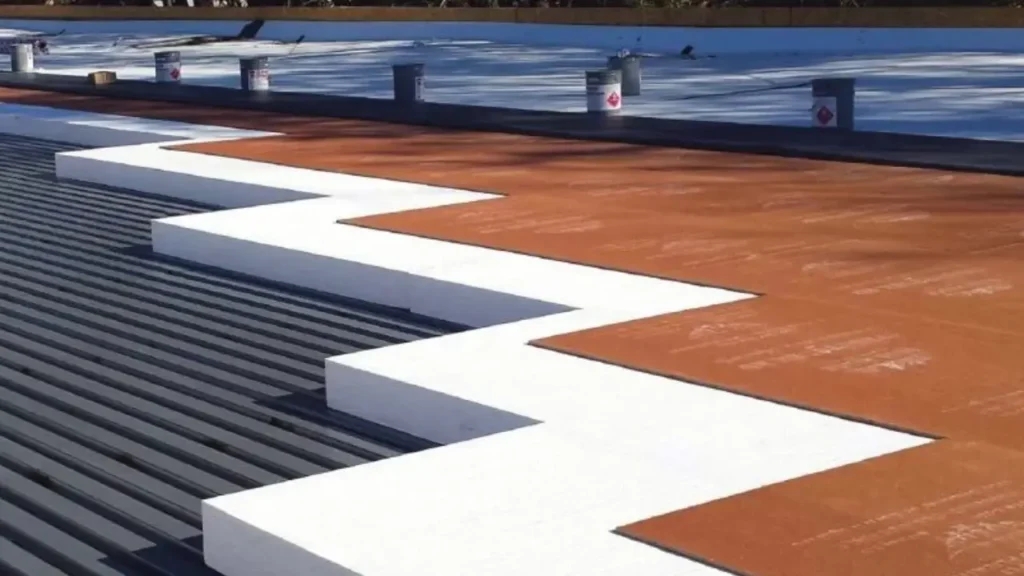Expanded Polystyrene (EPS) is a versatile material renowned for its lightweight, durable, and insulating properties. Its utilization spans across multiple industries, contributing significantly to modern-day innovations and applications.
Let’s explore the fascinating world of Expanded Polystyrene and its wide-ranging uses, and here are the tips about what is expanded polystyrene used for
What Is Expanded Polystyrene?

Expanded Polystyrene (EPS) is a lightweight, rigid, cellular plastic material derived from petroleum. It is created through a process where small beads of polystyrene are expanded and fused together, resulting in a versatile material with a closed-cell structure.
EPS is known for its excellent thermal insulation properties, shock absorption, and moisture resistance. It is commonly used in various industries, including construction, packaging, insulation, arts and crafts, horticulture, and marine engineering.
EPS is recyclable and widely utilized due to its cost-effectiveness, durability, and ease of customization.
What is Expanded Polystyrene Used For?
Expanded Polystyrene (EPS) is a lightweight, durable, and versatile material used in a wide range of industries. From insulating buildings and protecting fragile shipments to creating packaging solutions and crafting decorative items, EPS combines strength with flexibility. Its cost-effectiveness and sustainability make it a popular choice worldwide.
Construction Industry:
In construction, EPS serves as a fundamental material offering insulation, structural support, and versatility.
- Insulation: EPS foam boards are employed to insulate buildings, providing thermal resistance and enhancing energy efficiency by minimizing heat transfer.
- Void Formers: EPS is utilized as void formers in concrete construction, reducing weight and enhancing structural integrity without compromising strength.
- Lightweight Fill: EPS beads are used as lightweight fill material in road construction and landscaping projects, offering stability and reducing settlement.
Expanded Polystyrene Used for Packaging:
EPS is a preferred choice for packaging due to its exceptional cushioning properties, ensuring the safe transit of fragile items.
- Protective Packaging: Custom-molded EPS foam inserts are tailored to fit specific products, providing cushioning and protection during shipping and handling.
- Insulated Containers: EPS containers maintain the temperature of temperature-sensitive products such as food and pharmaceuticals, preserving their quality during transport.
Insulation Applications:
EPS plays a crucial role in enhancing energy efficiency and maintaining consistent temperatures in various applications.
- Wall Insulation: EPS panels are installed in walls to minimize heat loss and improve indoor comfort by maintaining a stable temperature.
- Roof Insulation: EPS boards are utilized in roofing systems to prevent heat loss and enhance energy efficiency, particularly in cold climates.
Art and Sculpture:
The lightweight and malleable nature of EPS makes it an ideal medium for artists and sculptors, enabling the creation of intricate designs and large-scale installations.
- Sculpting Medium: EPS blocks serve as a sculpting medium for creating detailed sculptures and artistic installations due to their ease of shaping and versatility.
- Set Design: In theater and film production, EPS is used for crafting props, stage sets, and scenic elements, offering cost-effectiveness and flexibility in design.
Expanded Polystyrene Used for Horticulture

EPS facilitates plant growth and enhances landscaping practices in the field of horticulture.
- Hydroponic Systems: EPS trays and containers provide support to plants in hydroponic gardening systems, promoting healthy growth and efficient nutrient absorption.
- Soil Amendment: EPS beads are incorporated into soil mixes to improve aeration and water retention, creating optimal conditions for plant growth and root development.
Expanded Polystyrene Used for Marine:

In maritime engineering, EPS contributes to buoyancy, stability, and insulation in various marine structures.
- Flotation Devices: EPS foam blocks serve as flotation devices in docks, pontoons, and buoys, ensuring buoyancy and stability in water-based structures.
- Shipbuilding: EPS is used as a lightweight fill material in shipbuilding to reduce weight and enhance buoyancy, contributing to constructing efficient and seaworthy vessels.
Expanded Polystyrene continues to be a cornerstone material across diverse industries, driving innovation and sustainability in modern applications.
Where to Use EPS Foam?

Expanded Polystyrene (EPS) foam is a highly versatile material, suitable for numerous applications across different industries. Its lightweight, insulating, and shock-absorbing properties make it ideal for both commercial and personal use. Here are some of the key areas where EPS foam proves highly effective:
- Automotive and Industrial Applications: EPS foam is used for vehicle parts, protective packaging of machinery, and cushioning in industrial equipment. Its shock absorption and lightweight properties improve safety, reduce material costs, and enhance product longevity.
- Construction and Insulation: EPS foam is widely used in building construction for thermal insulation, soundproofing, and moisture resistance. It reduces energy consumption by maintaining temperature stability, enhances structural integrity, and provides cost-effective insulation solutions for walls, roofs, and floors.
- Packaging and Shipping: EPS foam protects fragile items during transportation by absorbing shock and preventing damage. Its lightweight nature reduces shipping costs, while custom molds and shapes ensure snug fits for electronics, glassware, and other delicate products.
- Food and Beverage Industry: EPS foam is commonly used to manufacture food containers, cups, and coolers. It maintains temperature for hot and cold items, is lightweight for easy handling, and protects food products from contamination, making it ideal for restaurants and delivery services.
- Arts, Crafts, and Displays: EPS foam is popular in creative industries for sculpting, modeling, and exhibition displays. It’s easy to cut, shape, and decorate, making it ideal for signage, props, and artistic installations while remaining lightweight and durable.
Is Expanded Polystyrene recyclable?
Yes, Expanded Polystyrene is recyclable. It can be processed and reused in various applications, reducing environmental impact.
What are the environmental implications of using Expanded Polystyrene?
While EPS offers numerous benefits, its disposal can pose environmental challenges. However, recycling initiatives and sustainable practices mitigate these concerns.
Is Expanded Polystyrene safe for food packaging?
Yes, Expanded Polystyrene is FDA-approved for food contact applications, ensuring safety and compliance with regulatory standards.
Can Expanded Polystyrene be used in high-temperature applications?
While EPS has low heat resistance, specialized grades with enhanced temperature stability are available for high-temperature applications.
Are there any alternatives to Expanded Polystyrene for insulation?
Yes, several alternatives to EPS exist, including mineral wool, fiberglass, and polyurethane foam. Each material offers unique properties and suitability for different applications.
Conclusion
In conclusion, expanded polystyrene (EPS) proves to be an incredibly versatile material, widely used across construction, packaging, insulation, and even creative industries. Its lightweight nature, excellent thermal insulation, and shock-absorbing properties make it an essential choice for businesses seeking efficiency and sustainability in their operations.
From protecting delicate products during shipping to enhancing energy efficiency in buildings, EPS continues to demonstrate its value in everyday applications. Its adaptability and durability ensure that industries of all sizes can benefit from incorporating this material into their processes and solutions.
For businesses looking to source quality EPS at competitive prices, our Epsole platform offers wholesale expanded polystyrene tailored to your needs. Contact us today to get reliable supplies and elevate your projects with high-quality EPS solutions.
